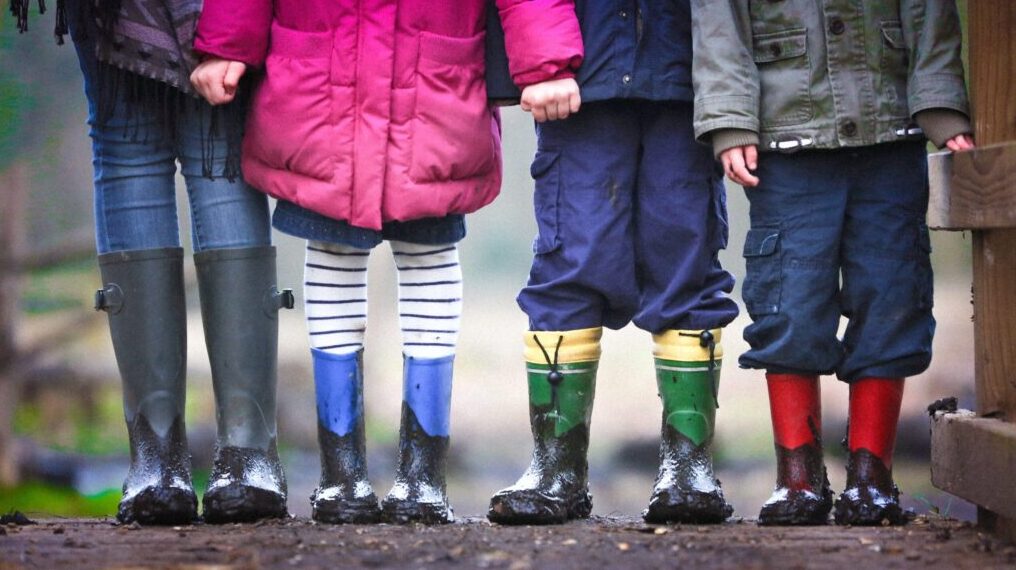Half of the UK public think early education should be one of the government's main priorities, with 10% saying it…
Early Years practitioners need emotional support too
In the UK, we have some amazing early years practitioners; expert professionals who are skilled at managing children’s emotions and supporting them to develop emotional literacy and resilience.
There is some incredible work being carried out in the early years at present, with the recent launch of approaches such as emotion coaching and trauma-informed practice giving practitioners the tools they need to support young children’s emotional development. Practitioners are more aware than ever that enabling children to recognise and label their emotions is the first step in supporting them in self-regulation and building healthy relationships with others.
With the recent challenges of the pandemic, the emotional aspect of early years practice has become even more critical. The global pandemic and the resulting UK lockdowns have affected children’s lives significantly, particularly their emotional wellbeing. Children have witnessed stress and worry in the adults around them, and some have experienced loss and bereavement. They have experienced changes in routines and social isolation, missing out on play dates and days out with friends and extended family. The long-term effects on children will not be fully known for some time.
A research project that I am currently leading has uncovered significant effects on the emotional wellbeing of practitioners themselves. The project’s aim was to examine early years practitioners’ perceptions of empathy within their role. Empathy is universally accepted as being essential for anyone working with people, and especially so for professionals working within the early years. Distinct from compassion, empathy is the capacity to see things from another person’s point of view in order to understand how they feel. Participants in this research project involved early years practitioners from a rage of nurseries, pre-schools, and schools. They were all asked to complete a reflective diary, focussing on empathy and emotional interactions within their role, followed by an interview, conducted virtually.
Interim findings have exposed examples of emotive and sometimes distressing interactions with children, resulting in many practitioners struggling to cope. Excerpts from the diaries are identified here in italics. Participants have expressed concern over the regression they have seen in children, particularly in relation to self-care, with children having to re-learn skills such as putting on their own coats and shoes when returning to nursery. They have described having to build attachments again, “as if they have had to start over again” and children struggling with the transition to the setting following lockdown.
One participant said, “Children seem overwhelmed by the change and unused to being in a noisy group of people” and another expressed how difficult it was to see very young children suffering with anxiety. They have also had to deal with increased anxiety from parents/carers, one participant describing the added pressure of having worried parents/carers worrying and constantly phoning to check on their child.
These added pressures have exacerbated the stress levels in a profession already endeavouring to manage the emotional labour involved in their work. Many early years practitioners have been working harder than ever during the pandemic, caring for some of the most disadvantaged children in very difficult conditions. The emotional cost is expressed in comments such as these: “I do really struggle at work a lot of the time; it’s been so draining emotionally, I’m constantly thinking about work, especially safeguarding issues; “I feel a sense of responsibility and that causes me to overthink and be anxious and sometimes not be able to sleep”; “it’s getting more emotionally taxing; I do think about a lot of the children when I’m not at work.”
Despite this emotional overload and the difficulties in managing unsettled children and anxious families, early years practitioners are committed to doing their very best for the children in their care and they are supporting each other as best they can. One participant in the research said, “the staff all support each other; we cry together over something most days.” Early years practitioners are unfortunately accustomed to being undervalued by society, and the majority are motivated by their determination to make a difference in the lives of young children.
I believe that more awareness of the emotional impact of the profession is necessary, particularly at this particularly challenging and difficult time. Practitioners benefit from opportunities to talk through their feelings with colleagues, both informally and through supportive supervision with managers. Supervision within the early years is mandatory but is something of a lottery in terms of the effectiveness of support offered to individual practitioners. The most compassionate managers will allow practitioners to express their emotions and will facilitate professional growth and resilience through conversation, modelling and reflective practice. This is so important in preventing emotional overload and burnout within the profession. These incredibly skilled and empathetic practitioners need to be treasured, just as they treasure the children in their care.
Angela Hodgkins
Senior Lecturer
Department for Children and Families
University of Worcester
Latest News
The Puddleduck Nursery in South London has been bought by first-time buyer Kim Bradley, owner of new company Luna Nurseries.
MPs spoke out about the impact of National Insurance rises on nurseries this week as Parliament voted against amendments which…





